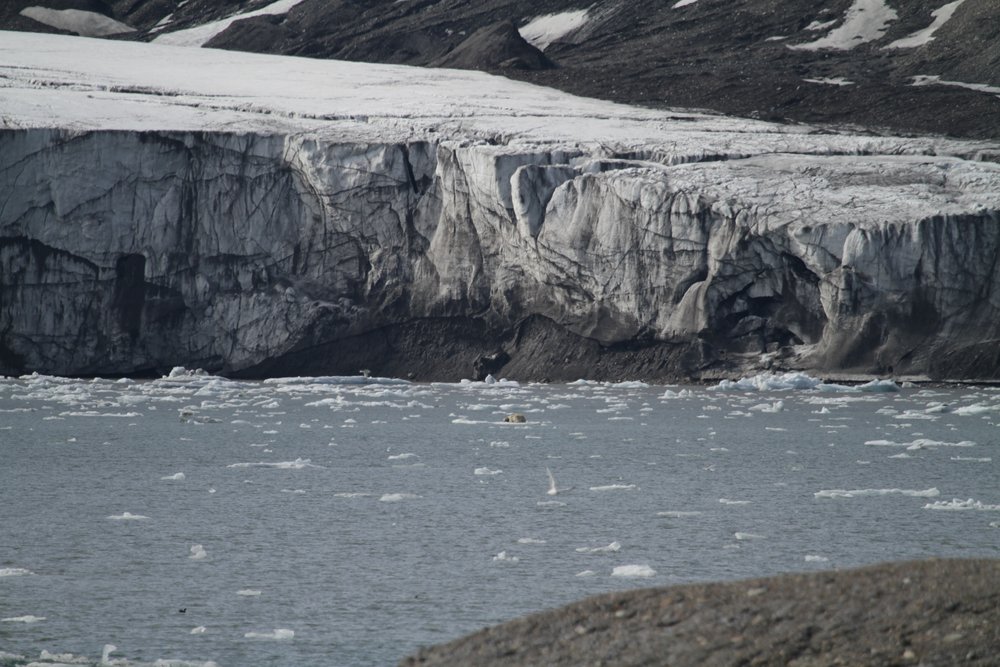PB

We had sailed into a beautiful fjord. Our three guides, Sarah Red, Sarah Blue and Therese went ashore to mark off a safe area. The scan and set-up was taking longer than usual. We stood on deck and strained toward the shore to know what was happening. The radios crackled. And then word came back: a bear was there, floating on a small iceberg. We could say those two words: Polar Bear.

We had sailed into a beautiful fjord. Our three guides, Sarah Red, Sarah Blue and Therese went ashore to mark off a safe area. The scan and set-up was taking longer than usual. We stood on deck and strained toward the shore to know what was happening. The radios crackled. And then word came back: a bear was there, floating on a small iceberg. We could say those two words: Polar Bear.

Then, without fanfare, the bear slipped off of its resting spot and swam off. We returned the zodiacs and the safety of the ship. A half hour later, the bear ambled onto shore. It swung its legs in a casual manner, but its strength and speed, even at a distance was obvious. The bear was off-white, smudged by dirt, not fat and not thin. From the distance of the ship I couldn’t see details of eyes or teeth, couldn’t smell the fur of the big bear. I only could see big shaggy feet, a lumbering gait.
I had been thinking that the safety of the trip was excessive—so much precaution against so few bears (there are approximately 3,500 on Spitsbergen). But once I saw this bear I realized how unexpected it was, and how fast it moved. Since the early 70s, when the Norwegian government required all traveling on Svalbard to carry a gun, only five people have been killed. That’s an impressive record. So my feeling caged in by the limited safety zones was the bear’s freedom. That seemed a fair trade off.
Nansen in his expedition north on the Fram met many bears. And he never hesitated to pull out his gun and shoot—a polar bear provided a lot of food for his men, and the fresh meat was important in keeping scurvy away. But his shooting is often dreadful to read—there are sloppy and slow deaths, and then there is a moment when he kills a mother with two cubs. He shoots the mother first, then describes in oddly loving detail the young sniffing and pushing at their mother in despair. He shoots them as well. Nansen finds the breast of the cubs a delicacy. The bear moving before me, however, is protected. No one is allowed to shoot a bear, except in self defense (and then an investigation ensues to ensure the danger was real).
